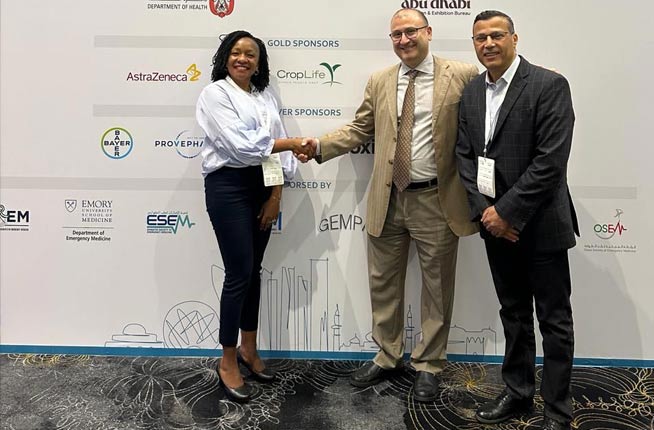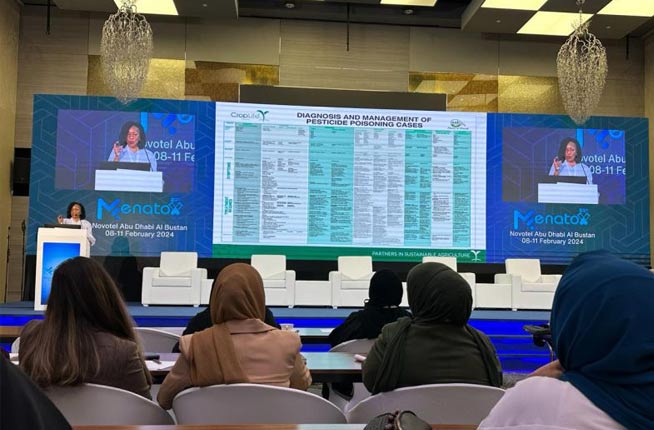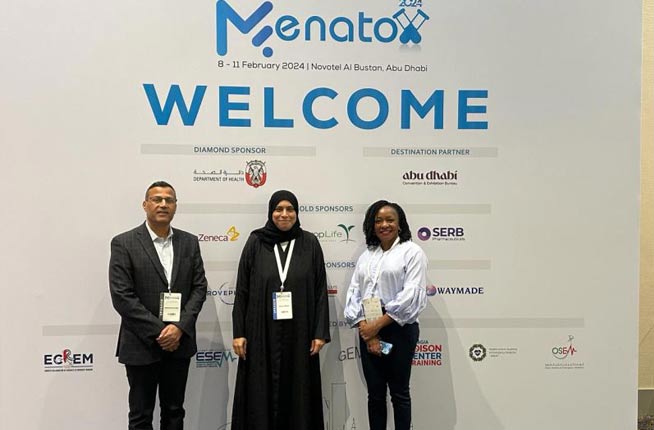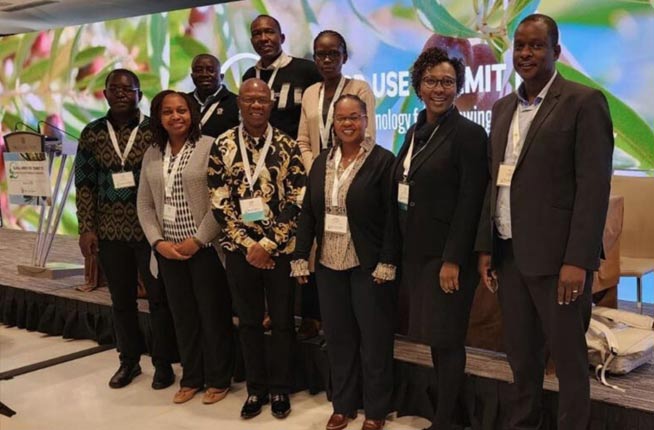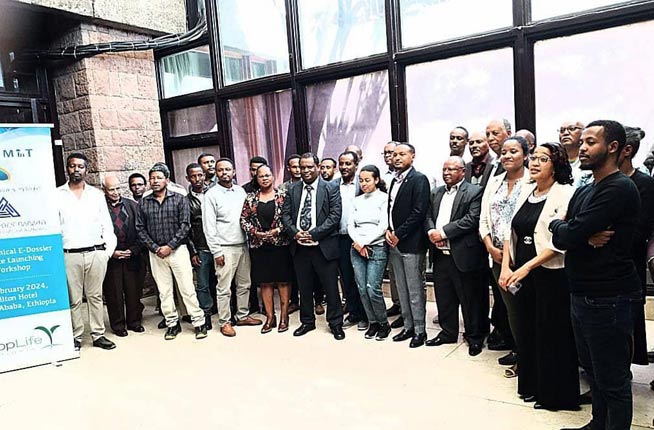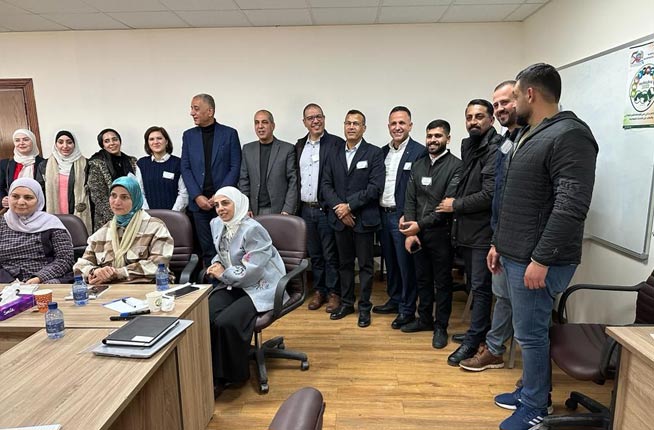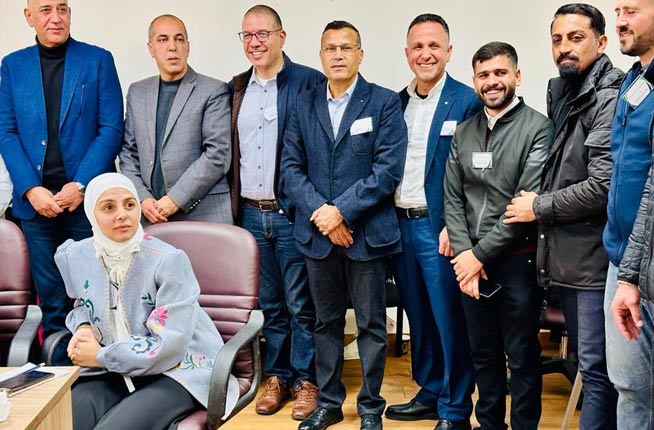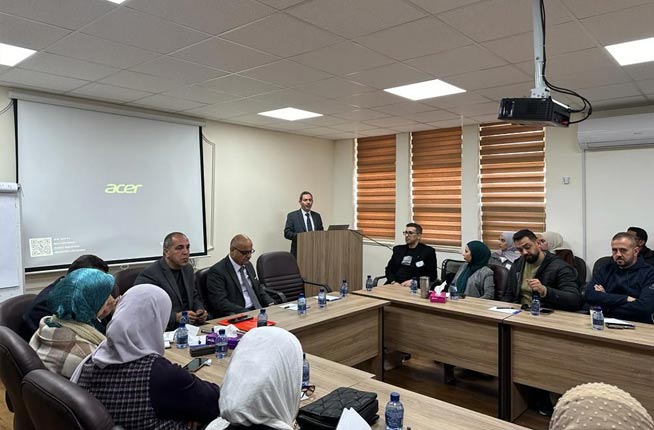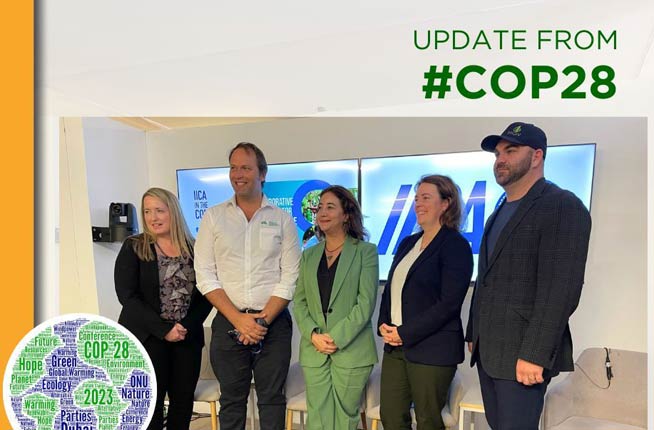Last week, CropLife AME colleagues attended the annual scientific meeting and conference organised by the Middle East and North Africa Clinical Toxicology Association (MENATOX Conference), in Abu Dhabi, United Arab Emirates. MENATOX aims to facilitate communication between all its members, promote collaborations that advance the care of poisoned patients, and establish meaningful research endeavours to achieve self-sustainability and better plan health care delivery. Evelyn Lusenaka, CL AME Stewardship Director, notably provided a presentation on Pesticides Primer for Clinical Toxicologists and Public Health Professionals: Proper Selection, Characteristics, and Safe Applications. The presentation provided the audience with a better understanding of pesticides, risks and hazards and responsible use. In addition to the presentation, CL AME held a side event titled The Roles of Poison Information Centres in the LMICs and EMRO Countries in Safe Management of Pesticides. Key outcomes from the presentation and side event were that CL AME needs to work closely to share information on pesticides with the clinical toxicologists. There is also a need to develop a database of the active ingredients and a guide on how the clinicians can manage incidences of poisoning. In addition, CLAME will work closely with MENATOX to build capacity of the poison information centres in data collection. CropLife AME is thriller to announce it has signed a Memorandum of Understanding (MoU) with MENATOX to collaborate in building the capacity of poison information centres across the MENA region in order to share knowledge and data on pesticide poisonings to augment stewardship activities in hotspot areas. The event was a great opportunity to share best practices on how as CL AME we work towards reducing the numbers of poisoning cases related to pesticides and to learn from experts in the field of clinical toxicology and public health research. The use of crop protection and biotechnology products is essential for maintaining and increasing agricultural productivity and improving farmer livelihoods on the African continent. However, this must be achieved with minimum risk to human health and the environment. To achieve this CropLife Africa Middle East, along with its member companies and associations, actively develops and promotes stewardship programs across the region. The industry recognises that effective stewardship is crucial for doing business in Africa and that it is especially important in low-income countries where regulatory enforcement may lack effectiveness.
CropLife AME took part in the Global Summit on Minor Uses in Madrid, Spain, to dialogue with stakeholders about productivity and trade in minor crops.
During the week of 5 February, Stella participated in the Global Summit on Minor Uses in Madrid, Spain. This was an opportunity to dialogue with stakeholders on potential solutions regarding the many challenges that negatively impact productivity and trade in minor crops. CropLife Africa Middle East values working together with various partners on capacity-building projects related to MRLs, consumer safety, and crop grouping. We welcome the next steps related to accelerating innovation by our members in providing technological solutions and enhancing MRLs knowledge among value chain actors.
CropLife Africa Middle East took part in the launch of an e-submission platform in Ethiopia, Addis Ababa
CropLife Africa Middle East is pleased to take part in the launch of an e-submission platform in Ethiopia. The launch took place on 1st February in Addis Ababa, led by the Ethiopian Agricultural Authority, and participations of CropLife Ethiopia and its members as well as CropLife AME. This is a major milestone in achieving the objective of digitalising the submission of dossiers, making the registration process of new technologies faster and therefore making new tools available to farmers in a quicker way!
CL AME MENA Regional Director, organized a Training of Trainers of Government Officers and Companies in Amman, Jordan.
In December, CL AME MENA Regional Director, organized a Training of Trainers of Government Officers and Companies in Amman, Jordan. The topics addressed were notably the classification of pests and diseases, Pest Management, IPM and Pest monitoring, Pesticide Classification, Pesticides regulation, registration, and monitoring in Jordan, understanding Counterfeit and illegal pesticides and consequences, Pesticide Resistance management and their causes. The training was attended by 15 (private companies) and 24 (Extension services and plant protection and phytosanitary section). Education is key as it is the seed that grows into a bountiful harvest, and through diverse programs, CL AME contributes to knowledge sharing and education.
Working together to promote climate resilience on farm
On Friday, 10 December, Dr Samira Amellal, CEO at CropLife Africa Middle East, took part in a thought-provoking discussion on the topic of “Working together to promote climate resilience on farm”, a side event of COP28 in Dubai, together with panellists Sophie Beecher, Director General, Sustainable Development Policy Directorate, Agriculture and Agri-Food Canada/ Agriculture et Agroalimentaire Canada, Kristjan Hebert, Global Farmer Network, President and CEO, HEBERT GROUP, & David ‘DJ’ Jochinke, President, Australian National Farmers’ Federation
Please see below key takeaway messages:
Via the Sustainable Pesticide Management CropLife Africa Middle East actively engages in discussions with local regulators and policymakers to ensure enabling legislative frameworks are in place. The SPMF illustrates well how enabling legislative frameworks, a localised approach and public-private partnerships are key ingredients to a successful program. As part of the ‘increase innovation pillar,’ the SPMF has already demonstrated changes, notably with the introduction of innovations via the acceleration of registration processes for biological solutions, cooperation with national research institutes on gene-editing research, development of guidelines for the use of drones in agriculture, training and e-learning modules for farmers on Integrated Pest Management, etc.

